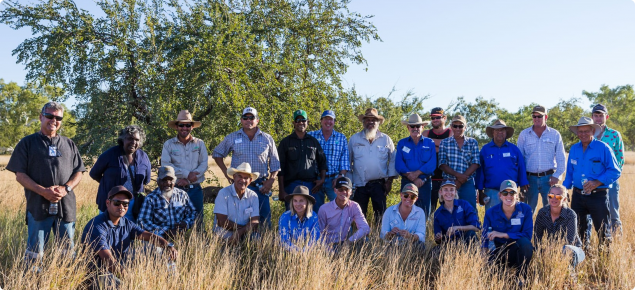Project framework
DPIRD's AED program of work and projects are aligned with a well defined strategic approach to grow Aboriginal business, increase Aboriginal employment, and facilitate opportunities for wealth creation and economic empowerment.
Projects are focused on unlocking and activating areas of opportunity for AED within WA’s primary industries and regions. Although it is relationships, partnerships and capacity building that provide the building blocks for project design and delivery. There can never be one without the other, but how they fit together will always be different because each project is a unique journey.
Building relationships with Aboriginal people and trust enables DPIRD to truly understand their aspirations, and design projects that are bespoke to each community’s cultural practices. Projects will not be effective if Aboriginal people are not provided with a genuine say in the design and delivery of the projects initiatives that affect them.
Capacity building is at the core of each project and will determine timeframes and whether external services and formal partnerships are required. Partnerships are important to developing projects, and also providing capacity building support beyond the life of the initial project.
DPIRD’s AED projects may be short term or require years of commitment. The end goal is to empower Aboriginal people to build careers, become successful business owners and corporation managers, and contribute to WA’s economy. This can take time.
Working in partnership
Formal partnerships are a means of accessing resources to support the establishment and delivery of AED projects, to maximise Government investment by facilitating the best possible outcomes.
Partnerships may be created to source funding, capacity building and professional services, facilities, infrastructure and commercial investment. Existing partnerships can be leveraged to resource the expansion of existing AED projects, or the establishment of new initiatives beyond the life of the initial project.
It is critical that support continues until Aboriginal entities have become self-sustaining and Aboriginal people have secure employment and careers. Partnerships enable support to continue over the long term, while at the same time freeing up DPIRD’s resources to focus on other initiatives.
DPIRD’s AED projects are demonstrated and scalable models that can be used by partners to develop governance and leadership programs, Aboriginal-industry partnerships, and Aboriginal-led service delivery. All of these are aligned with new approaches to improving Aboriginal outcomes that have been committed to by all Australian Governments.
The AED Program is opening up an opportunity to increase the breadth of successful AED in WA. The program prioritises partnering with Aboriginal owned and operated entities which understand that culturally appropriate support leads to better outcomes. This approach in itself is a capacity building opportunity for Aboriginal people.
Other partners may include industry, Regional Development Commissions, other Government agencies and non-Government groups.
Relationships with Aboriginal people
The AED Program is a champion for projects based on partnerships and shared decision-making with Aboriginal people. The program is aligned with Commonwealth and State Government efforts to ensure that Aboriginal people have a genuine say in the design and delivery of the policies, programs and services that affect them.
DPIRD’s AED Program is founded on building trust with Aboriginal people, through relationships that have been years in the making. Relationships lead to collaboration and the design of projects that are bespoke to Aboriginal aspirations, and their people, place and culture. Projects are more effective because they are inclusive of traditional knowledge and expertise.
Aboriginal communities will not participate in Government projects and decisions that are imposed, or disrespectful of their beliefs and value systems. Aboriginal people need to have a sense of ownership and control over initiatives.
This approach is set out in the WA Aboriginal Empowerment Strategy Western Australia 2021-2029 (page 27):
"Lasting improvements in outcomes will only come from approaches that draw on Aboriginal people’s perspectives, priorities, knowledge, experience, and ways of working. Greater Aboriginal involvement and influence leads to more effective outcomes for a number of reasons, including:
- The people affected by a decision are likely to have valuable information, expertise and lived experience not otherwise available to the Government.
- People who have a personal stake in the outcome of a decision or initiative are likely to be more aware of key risks and opportunities not apparent to others.
- Where an initiative or service is seen as legitimate and community-owned, there is likely to be greater buy-in, participation or – in the case of laws or regulations – compliance.
- Through active participation, people can gain a sense of personal empowerment that builds their confidence to make a positive difference in other areas.
- By contrast, feeling disempowered by a process can have negative impacts on a person’s sense of control in other areas of their lives."


